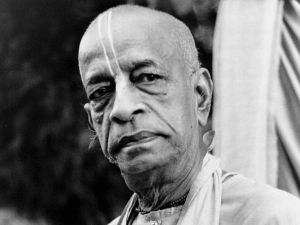Part 11 – The end of ISKCON’s political campaign
Melbourne's Age "Quote of the Week" cited Sabhapati's reply to the question "What's the first thing you would do if you're elected to the House of Representatives?"
Sabhapati's answer was to the point: "I would abolish the bar in Parliament House -- how can you rule the country if you're intoxicated?"
The results of the Federal Elections, although not exciting, showed promise. Out of 52,982 possible votes, Sabhapati received 593 -- including 134 absent votes and 68 postal votes -- a total of a little over one percent.
Sabhapati was not immediately inclined to continue his political career, but was satisfied that he had put in a good effort. It would take some time, he reasoned, for Krishna consciousness to become widely accepted amongst the community, who, on the whole, were still addicted to so many bad habits.
The “In God We Trust” political platform is short lived. Karandhar raises concerns that ISKCON may lose its tax-exempt status because a religious movement can’t be directly involved in financing political parties.
By June, 1974, Prabhupada has stopped the political preaching because the political atmosphere is too contaminating for his novice disciples. When the political preaching campaigns are abandoned, devotees return to sankirtan and book distribution as their main preaching focus. Prabhupada writes Balavanta, “Better concentrate on developing the brahminical qualities in the devotees there; that is more important than running for political office.” [Letter to Balavanta - June 10, 1974] Although Balavanta did not become the Mayor of Atlanta nor was Sabhapati successful in the Melbourne race, nevertheless, Prabhupada was pleased with their attempt, stating that every vote they received was a vote for Krishna.
THE END
